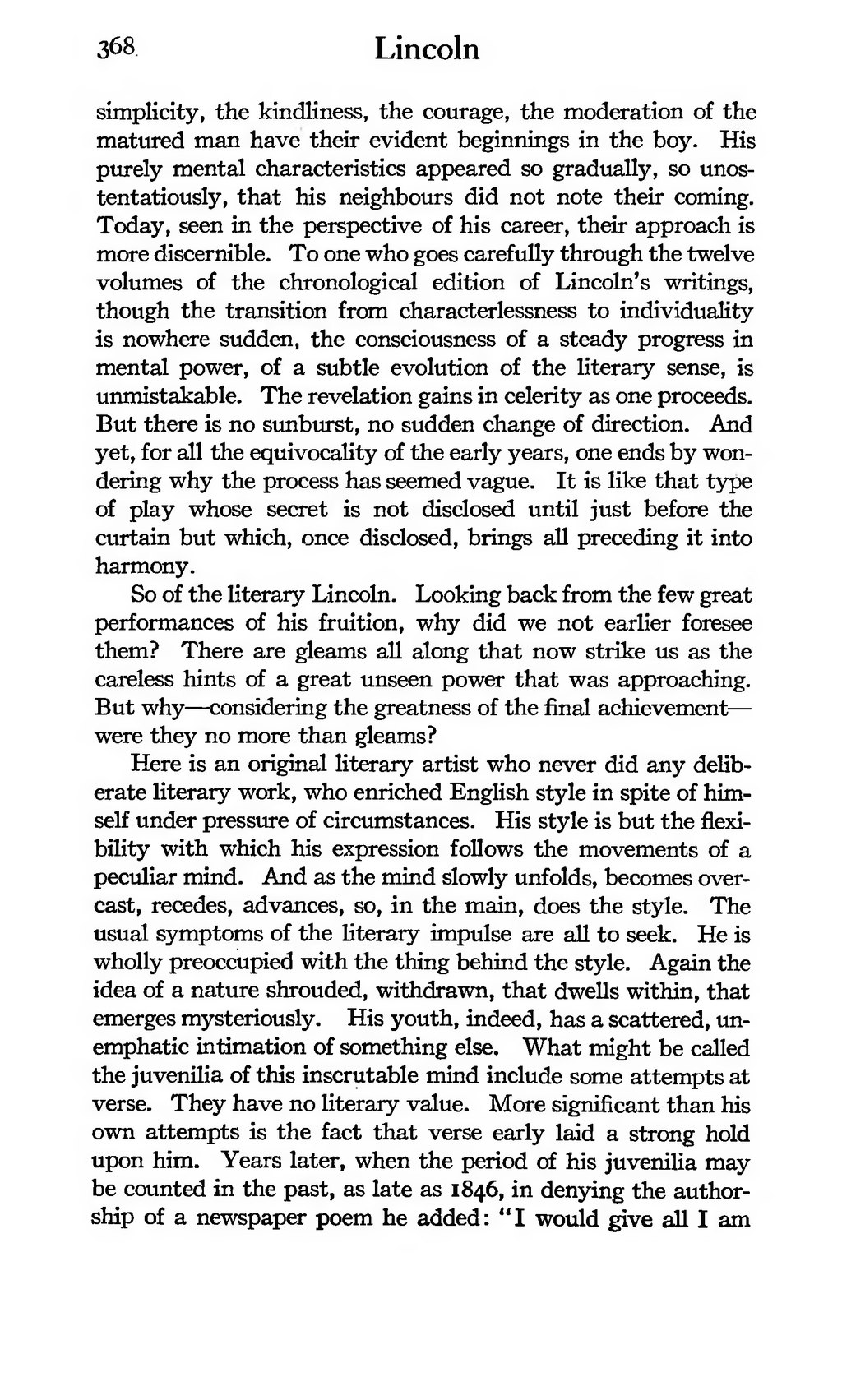simplicity, the kindliness, the courage, the moderation of the matured man have their evident beginnings in the boy. His purely mental characteristics appeared so gradually, so unostentatiously, that his neighbours did not note their coming. Today, seen in the perspective of his career, their approach is more discernible. To one who goes carefully through the twelve volumes of the chronological edition of Lincoln's writings, though the transition from characterlessness to individuality is nowhere sudden, the consciousness of a steady progress in mental power, of a subtle evolution of the literary sense, is unmistakable. The revelation gains in celerity as one proceeds. But there is no sunburst, no sudden change of direction. And yet, for all the equivocality of the early years, one ends by wondering why the process has seemed vague. It is like that type of play whose secret is not disclosed until just before the curtain but which, once disclosed, brings all preceding it into harmony.
So of the literary Lincoln. Looking back from the few great performances of his fruition, why did we not earlier foresee them? There are gleams all along that now strike us as the careless hints of a great unseen power that was approaching. But why—considering the greatness of the final achievement— were they no more than gleams?
Here is an original literary artist who never did any deliberate literary work, who enriched English style in spite of himself under pressure of circumstances. His style is but the flexibility with which his expression follows the movements of a peculiar mind. And as the mind slowly unfolds, becomes over cast, recedes, advances, so, in the main, does the style. The usual symptoms of the literary impulse are all to seek. He is wholly preoccupied with the thing behind the style. Again the idea of a nature shrouded, withdrawn, that dwells within, that emerges mysteriously. His youth, indeed, has a scattered, unemphatic intimation of something else. What might be called the juvenilia of this inscrutable mind include some attempts at verse. They have no literary value. More significant than his own attempts is the fact that verse early laid a strong hold upon him. Years later, when the period of his juvenilia may be counted in the past, as late as 1846, in denying the authorship of a newspaper poem he added: "I would give all I am
